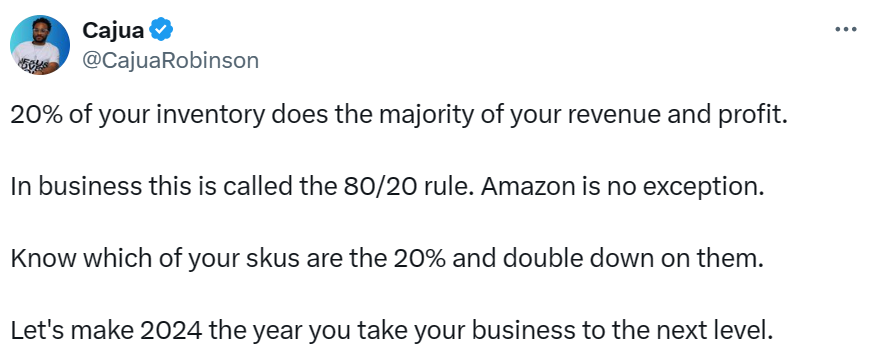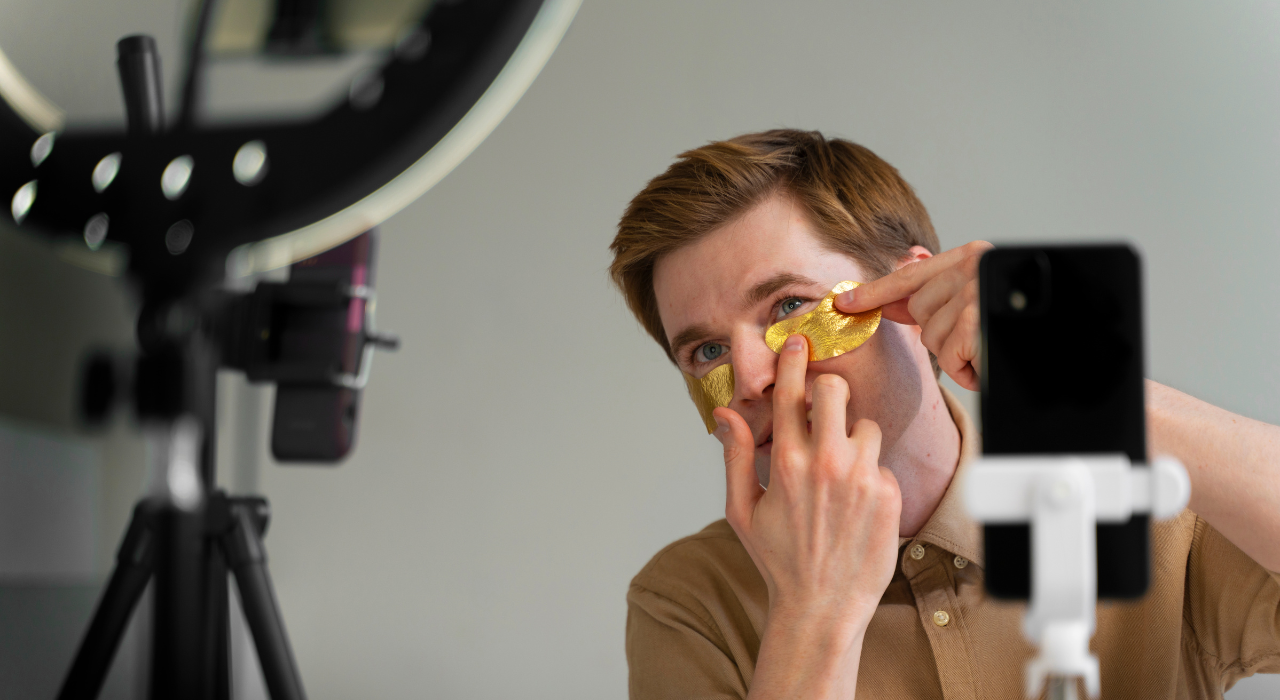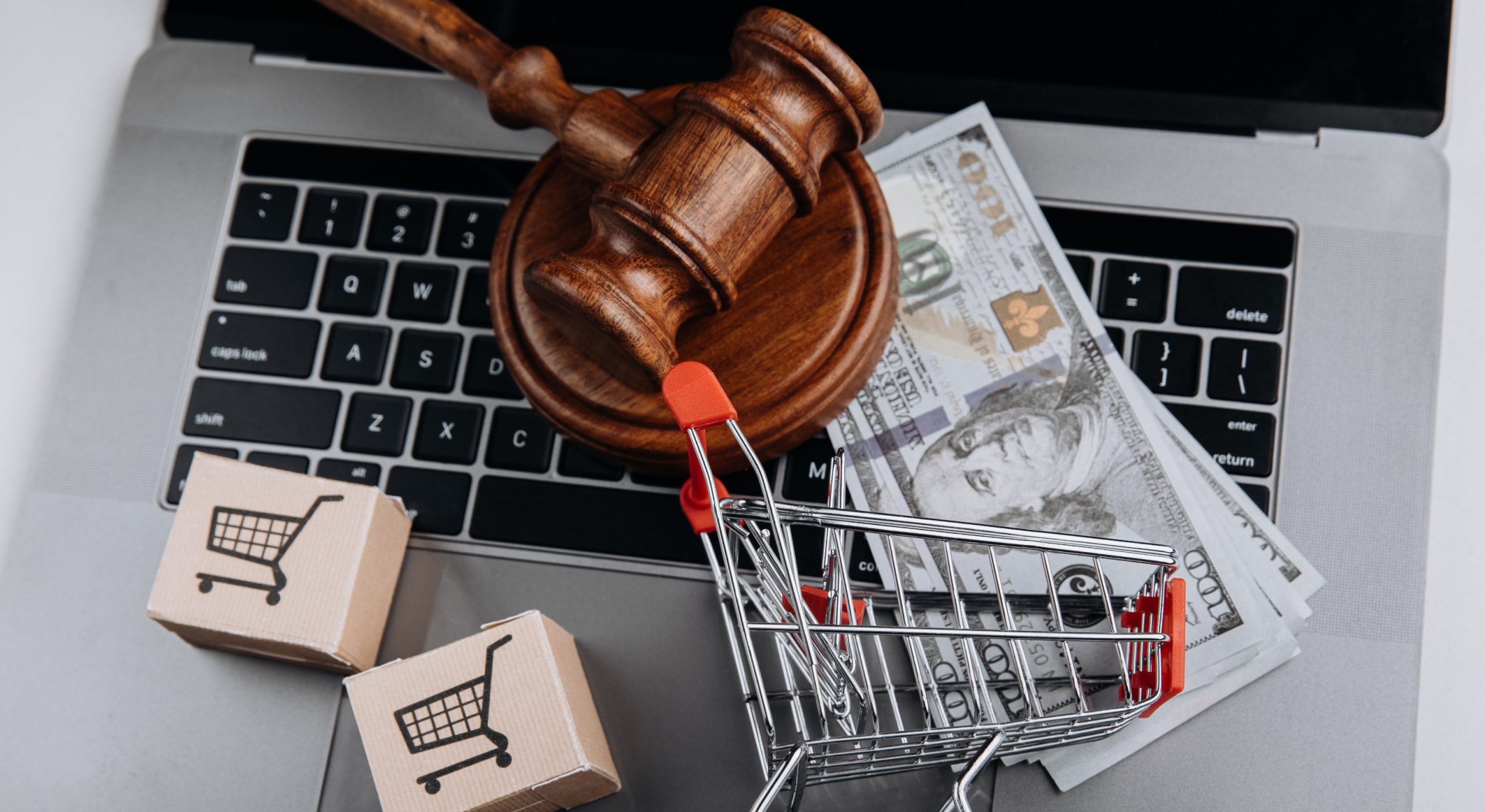Happy start of the week!
One proof that consumer behavior can be tricky to predict is the list of Amazon best-sellers this month, which includes art products, appliances, and even outdoor gear!
Today, we’re giving you an organized view of the latest happenings in online marketplaces amid shoppers' seemingly random to-buy lists.
- Amazon vs. fake review brokers ⚔️
- Your future UGC partner 🔮
- Changes to Amazon’s low-inventory-level fee 📌
- Types of social proof 🧾

POST OF THE WEEK


BLACK MARKET
Did you know that Amazon pioneered online product reviews in 1995?
Yup, the retailer introduced them to help customers make better choices. However, bad actors found a way to infiltrate the platform with fake reviews.
But Amazon has a long track record of fighting fake reviews before customers see them. In fact, the retail giant blocked over 250 million suspected fake reviews in 2023. Here's the latest on their legal action efforts:
🕵️ Recent crackdowns
Fake reviews on the platform are backed by fake review brokers. This shady industry profits from deception by paying people to either boost a bad seller's listing with positive reviews or sabotage a competitor's listing with negative reviews.
But Amazon's not having any of it. The company uses a mix of machine learning models along with expert investigators. And when legal action comes into play, they’re hitting fraudsters where it hurts—their pockets. 👛
Recently, Amazon scored big against several shady operations:
- Amazon v. Auction Sentinel: Last March, Amazon took down these people from making profits from their shady deals. The operators used to sell five-star “verified” seller feedback and stealth account setup service.
- Amazon v. AmzonReview.com: Another victory against a site selling fake reviews, specifically targeting Kindle products.
- Amazon v. Dragon-Dealz.com: Owners of this platform got busted for offering refunds in exchange for fake positive reviews across various countries.
- Amazon v. Reviewerschannel.com: This operation got shut down for offering refunds for fake positive reviews across different countries.
📌 A continued commitment
Amazon emphasizes that "these fraudsters need to be held accountable," indicating that the legal actions taken are just the start. So, we can expect the retailer to keep swinging at fraudsters who try to exploit the system.

TOGETHER WITH INSENSE
1,500+ successful brands swear by this UGC sourcing partner
UGC for TikTok, Meta, and Amazon Ads drives higher conversions because it’s full of social proof - but how can you easily source high-quality UGC at scale?
Enter Insense.
Insense is the leading platform for UGC and influencer marketing, trusted by 1,500+ brands including Malouf, Rankster, and Upper Echelon Products.
“We tested 20+ platforms before Insense, we love how we can manage all our campaigns and get content in only 2 weeks” - Paul Harvey, Rankster
Insense stands out because:
- Creators apply to you: responsive UGC creators apply directly to your campaigns in minutes
- Delivered in 10 days: receive high-performing UGC for organic + paid social
- Simplified admin work: automated influencer agreements, payments, and digital content usage rights
- Money-back guarantee: if an influencer ghosts
- Repeat + long-term collabs: build relationships with influencers and UGC creators
Try it now!
Book a free 1-2-1 strategy call and get $200 for your first campaign.

BITES OF THE WEEK
- Amazon’s Q1: Amazon publishes its first Quarterly Earnings Report for the year.
- CEO Counterfeiter: Sales of counterfeit Cisco equipment lands tech CEO 6 years in prison.
- Copying Temu: Shein's privacy policy is being questioned as it adopts Temu's rewards strategy.

AMAZON NEWS
Amazon has new changes to its low-inventory-level fee
Last December 2023, Amazon introduced its plan to charge a low-inventory-level fee to improve inventory management and delivery speed. However, this move upset many sellers feeling the current financial strain. 👎
Last April 1, the fee officially came into effect, but Amazon announced a grace period to help sellers adjust to the fee and its management tools. It promised to credit back any fees incurred from April 1 to May 14, 2024 by May 31, 2024.
To win back sellers’ hearts, Amazon also announced updates to its low-level-inventory fee:
⏰ What’s new?
Listening to seller feedback, Amazon is implementing 3 additional changes to the fee:
- Product exemption. Starting May 15, the fee won't apply to products selling less than 20 units in the past 7 days. This would help sellers address the challenge of managing inventory for seasonal or low-volume items.
- Credit for delays. Low-inventory-level fees due to inbound and processing delays caused by Amazon or its managed services will be refunded by the 15th of the following month. For example, if there are delays in May, you'll get refunded by June 15.
- Prime Day exception. For Prime Day 2024, products included in Prime-exclusive Lightning Deals and Best Deals will be exempt from the fee. The fee exception will apply for 4 weeks following Prime Day because of the potential inventory fluctuations from Prime Day sales.
With these updates, Amazon aims to ease the burden of the low-inventory-level fee. But we’d also love to hear how you think this will impact your finances and overall business operations, so feel free to hit that reply button! 🫵

SELLER REFRESHER
6 types of social proof you need to know (and get)
More and more marketers talk about the importance of social proof, especially with today’s prevalent social media use.But ICYDK, the term has been around since 1984.
It’s a trend where people gather evidence and actively seek other opinions before deciding. Marketing-wise, this refers to how existing customers convince new shoppers that your product is great.
🤳To guide you in using this trend to your advantage, OptinMonster breaks down the 6 types of social proof:
- Customers - proof from your existing customers.
- How to use it: Display testimonials on your website, encourage on-site reviews, and invest in case studies.
- Experts - proof from knowledgeable and known figures in your niche.
- How to use it: Host social media takeoversand invite industry experts to events (like webinars, interviews, etc.).
- Celebrities - testimonials from celebrities (or influencers) who have used your products.
- How to use it: Getcelebrity endorsements, collaborations, or partnerships.
- Crowds - proof based on citing a large number of people (such as how many customers rated your products with 5 stars).
- Friends - proof from the connections of potential customers (such as a user with Facebook friends who follow or like your page).
- How to use it: Showcase customer photos and other UGC and create referral programs.
- Certificates and awards - proof from third parties that can verify your trustworthiness and your product’s authenticity and high quality.
- How to use it: Display certifications, awards, badges, and third-party reviews.
👌 Social proof = fail-proof
Just so we’re clear, you don’t need to gather all types of social proof above. But you’d want to get as much high-quality, genuine proof as possible to increase your chances of scoring big sales.






